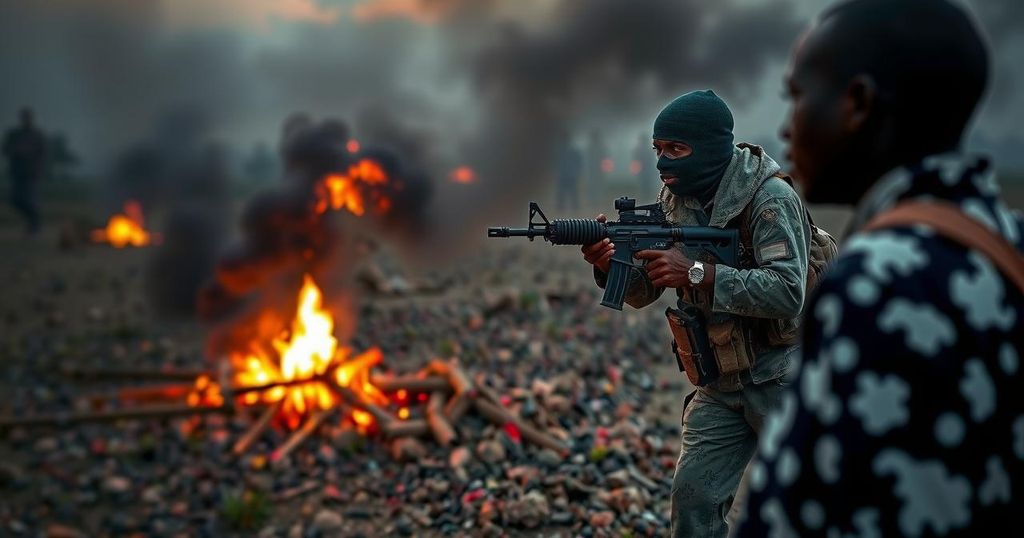A drastic surge in violence in Sudan has resulted in hundreds of deaths amidst widespread aerial bombings and violent reprisals. As conflicts reignite post-rains, the military struggles against the R.S.F., while grave humanitarian conditions intensify, demanding urgent global attention.
A significant increase in violence has devastated civilian populations across Sudan, resulting in hundreds of fatalities from aerial bombings and retaliatory strikes within just one week. This surge in hostilities follows the conclusion of seasonal rains, propelling Africa’s largest conflict into a more intense phase. Reports indicate that territory is shifting between combatants, with a notable military leader switching alliances, while retreating forces have been implicated in sexual assaults, kidnappings, and murders of villagers amid ongoing skirmishes in disputed areas. Furthermore, a military cargo aircraft crashed in Darfur, reportedly involving at least two Russian crew members, highlighting the increasing involvement of foreign mercenaries in the conflict. The Sudanese military, after having lost significant ground, now appears to be regaining some advantage against the Rapid Support Forces (R.S.F.), a powerful paramilitary faction it has clashed with for the past eighteen months. Both sides are simultaneously facing war crimes allegations from rights organizations and the United States, although significant accusations of ethnic cleansing have been leveled chiefly at the R.S.F. Kholood Khair, the founding director of Confluence Advisory, emphasized that “The fighting season has just restarted, and both sides want to jostle for an early advantage.” This intensification of violence unfolds against an alarming backdrop, with over ten million individuals displaced, widespread famine, and the urgent spread of diseases such as cholera and dengue fever.
The current conflict in Sudan has evolved following years of political instability and civil strife that has seen various factions vie for power. The emergence of the Rapid Support Forces has significantly changed the dynamics of warfare in the region, leading to dire humanitarian consequences. As seasonal weather patterns have shifted, combatants are rekindling hostilities with renewed vigor, drawing increased international attention and condemnation, particularly regarding war crimes and human rights violations. The involvement of foreign military contractors places additional complexity on the situation, as external influences intervene in what has become a prolonged and devastating conflict.
The ongoing escalation of violence in Sudan represents a critical humanitarian crisis, with thousands of lives lost and millions displaced. The conflict underscores the complexities of local and foreign involvements, highlighting the urgent need for international intervention and protective measures for vulnerable populations.
Original Source: www.nytimes.com






